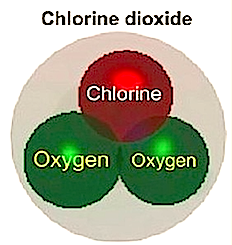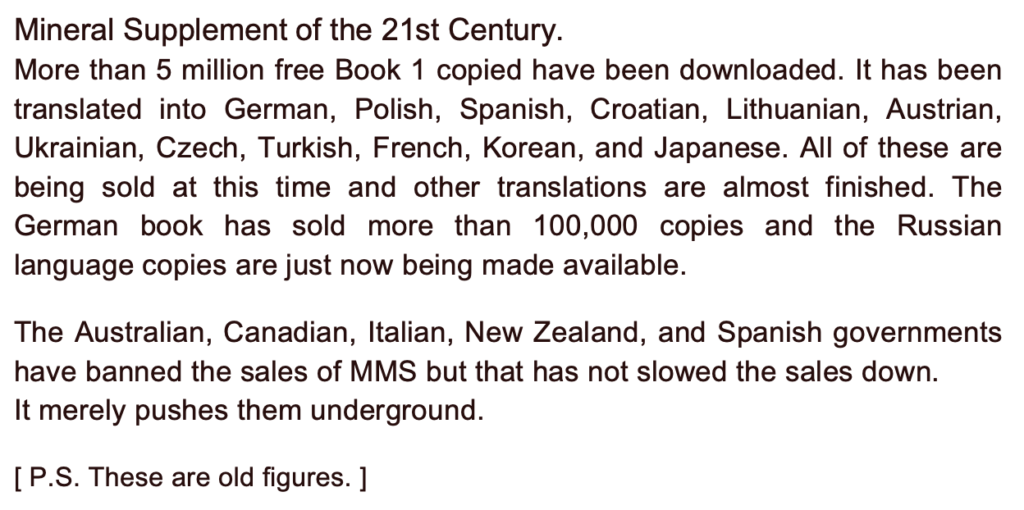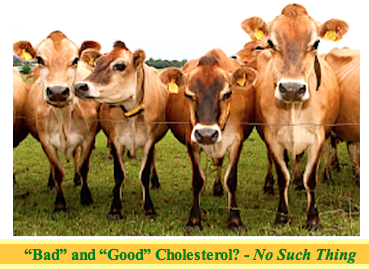SOME
⇒ Commercial Applications Chlorine dioxide ⇐
.
M M S 1
THE MINERAL SUPPLEMENT OF THE 21ST CENTURY
How many of you believe there are “good” and “bad” cholesterol?
How many of you believe that cholesterol clogs arteries?
How many of you believe you need to keep your cholesterol under 200?
How many of you believe that you should not eat eggs or saturated fats?
How many of you have heard that too much Cholesterol will kill you?
..
We have we been “kept in the dark” about what Cholesterol is and its importance in the body.
Again, let’s look at what cholesterol does in the body and you decide if it is a “problem” or not.
Also, let’s see what the physiology of the human body in regard to how vital cholesterol is.
Your body needs around 3000 mg of cholesterol a day to be used in the following ways:
1.) It is the body’s repair substance. No cholesterol – no repair!
2.) It is needed in production of: testosterone, oestrogen and progesterone. No cholesterol – no sex hormones!
3.) It is the precursor to vitamin D. No cholesterol – no Vitamin D production!
4.) The bile salts that are required in the digestion of fat are made of cholesterol. No cholesterol – no digestion, no absorption!
5.) It is a powerful antioxidant. No cholesterol-no antioxidants which eliminate free radicals!
6.) It protects us against cancer and aging. No cholesterol –
no protection against aging and cancer!
7.) It is vital to proper neurological function. No cholesterol –
no nerve protection and connection!
8.) It plays a key role in the formation of memory and the uptake of hormones in the brain. No cholesterol – no memory!!!
9.) It allows serotonin receptors to work. It carries signals along and between nerves – a neurotransmitter. It is mainly found in the brain, bowels and blood platelets. No cholesterol – no nerve connection!
10) It builds cell membranes. No cholesterol – no cells!
11.) Cholesterol makes up 25% of the brain. No cholesterol – 25% of brain gone!
.
Note: Cholesterol is abundant in the tissue of the brain and nervous system. Myelin, which covers nerve axons to help conduct the electrical impulses that make movement, sensation, thinking, learning, and remembering possible, is over one fifth cholesterol by weight.
.
12.) It “patches”, as LDL, veins and arteries. Why? The arteries collapse during the off – beat of the heart! If brittle they crack. Cholesterol is sent to patch, to not bleed. Culprit in the cracking of the arteries; aluminum and fluoride, really the same things. No cholesterol – no repairing of damaged arteries!
13.) It is so valuable its recycled and used elsewhere. No cholesterol – nothing to recycle!
With an estimated, 1 in 4 Americans over the age of 45 on statin drugs such as: Lipitor, Crestor and Zocor to name a few, we should really look at what Cholesterol is and what it does in the body.
The Liver produces about most of the daily cholesterol needed but not all. The rest comes from diet. Even though your body makes ¾ of its own cholesterol, it needs the ingredients to do it, right? Vegetables (as well as fruits, nuts and whole grains) do not contain cholesterol. For a food item to have dietary cholesterol, it would need to come from an animal or contain a product from an animal. Only the cell membranes of animal tissue contain cholesterol. Cell membranes of plants are composed of fiber, not cholesterol. When you see “no cholesterol” on a package of fruit, vegetables, grains, or even vegetable oil, don’t believe that the manufacturer has done you a favor by removing the cholesterol. There was no cholesterol in these foods to begin with. Cholesterol is produced in the liver by combining fats, proteins and carbohydrates in a 25-step process.
.
So, you really don’t want a “No cholesterol” diet! High cholesterol is actually, healthier! Besides the liver producing cholesterol, the very best way to receive cholesterol into the body is to eat it. Now, if you only eat fruits and vegetables, nuts and grains then you are receiving “0” cholesterol, right? We can get some fats and proteins from these foods but one needs a lot compared to meats and dairy. Also, these foods have the most saturated fats and highest in proteins which are two of the building blocks of cholesterol.
.
Note: Children deprived of cholesterol in infancy may end up with poor eyesight and brain function. Manufacturers of infant formulas are aware of this fact, but following the anti-cholesterol dogma, they produce formulas with virtually no cholesterol in them. Mothers milk is high in cholesterol!
Top Cholesterol Myths People Believe
.
Myth: Cholesterol Is Bad
Cholesterol is not inherently bad. If it were, your liver wouldn’t produce it (unbeknownst to many, your liver makes about three-quarters or more of your body’s cholesterol—that’s how important it is).
Many of the healthiest foods happen to be rich in cholesterol (and saturated fats), yet cholesterol has been demonized since the early 1950s following the popularization of Ancel Keys’ flawed research.
In reality, cholesterol has many health benefits. It plays a key role in regulating protein pathways involved in cell signaling and may also regulate other cellular processes,2 for instance.
It’s already known that cholesterol plays a critical role within your cell membranes, but research suggests cholesterol also interacts with proteins inside your cells, adding even more importance. Your body is composed of trillions of cells that need to interact with each other.
Cholesterol is one of the molecules that allow for these interactions to take place. For example, cholesterol is the precursor to bile acids, so without sufficient amounts of cholesterol, your digestive system can be adversely affected.
It also plays an essential role in your brain, which contains about 25 percent of the cholesterol in your body. It is critical for synapse formation, i.e. the connections between your neurons, which allow you to think, learn new things, and form memories.
.
Myth: High Cholesterol Is Caused by What You Eat
This is simply untrue. The biggest factor in cholesterol is not diet but genetics or heredity.
Your liver is designed to remove excess cholesterol from your body, but genetics play a large part in your liver’s ability to regulate cholesterol to a healthy level.
Take, for instance, people with genetic familial hypercholesterolemia. This is a condition characterized by abnormally high cholesterol, which tends to be resistant to lowering with lifestyle strategies like diet and exercise.
Further, eating nutritious cholesterol-rich foods is not something you should feel guilty about; they’re good for you and will not drive up your cholesterol levels as you may have been told.
It’s estimated that only 20 percent of your blood cholesterol levels come from your diet.
One survey of South Carolina adults found no correlation of blood cholesterol levels with so-called “bad” dietary habits, such as consumption of red meat, animal fats, butter, eggs, whole milk, bacon, sausage and cheese.
If you’re still worried about the cholesterol in your diet, take a look at the newly released 2015 U.S. Dietary Guidelines.
As recently as 2010, U.S. dietary guidelines described cholesterol-rich foods as “foods and food components to reduce.”
They advised people to eat less than 300 milligrams (mg) per day, despite mounting evidence that dietary cholesterol has very little to do with cholesterol levels in your body.
The latest guidelines have finally removed this misguided suggestion, and they even added egg yolks to the list of suggested sources of protein.
The long-overdue change came at the advice of the Dietary Guidelines Advisory Committee (DGAC), which acknowledged what the science shows, which is that “cholesterol is not considered a nutrient of concern for overconsumption.”5
Myth: Everyone’s Cholesterol Level Should Be the Same
What is a healthy cholesterol level? That depends. Despite what your doctor may tell you, there’s no rule that says everyone’s total cholesterol should be less than 200 milligrams per deciliter
(mg/dL) and your LDL less than 100 mg/dL.
Myth: Margarine Is Better Than Butter for Cholesterol Butter, especially raw organic butter from grass-fed cows, is a wealth of nutrition and nourishing fats. Research points to the fact that butter may have both short-term and long-term benefits for your health. A Swedish study found that fat levels in your blood are lower after eating a meal rich in butter than after eating one rich in olive oil, canola oil, or flaxseed oil.
Further, replacing saturated animal fats with omega-6
polyunsaturated vegetable fats (i.e., margarine) is linked to an increased risk of death among patients with heart disease, according to a 2013 BMJ study.7 Swapping margarine for healthy butter is the opposite of what your body needs for heart health, and here’s why. Saturated fats have been shown to raise HDL cholesterol—a benefit—and may also increase LDL.
The latter isn’t necessarily bad either, as research has confirmed that eating saturated fats raises levels of large, fluffy LDL particles—the type that do not contribute to heart disease.
Further, eating saturated fat may even change the small, dense LDL in your body into the healthier large, fluffy LDL!8,9
On the other hand, margarine has historically contained synthetic trans fat, the worst type of man-made fat that increases small, dense LDL—and your risk of chronic disease.
Source: articles.mercola.com
There have been many studies that prove the low fat, low Cholesterol and high carb diet, which includes fruits and vegetables have been the cause of heart disease not Cholesterol. The profits that have been gained by the medical and pharmaceutical industries from Cholesterol hindering drugs has kept the truth about the body’s need and dependence for Cholesterol silenced from the media and therefore the public in general.
SEE: articles.mercola.com/sites
/articles/archive/2010/07/20/the-
truth-about-statin-drugs-revealed
You got your blood test results back and you found out your cholesterol level is 300! You panic and listen fearfully to your doctor telling you how the “bad” LDL cholesterol needs to be lowered immediately! Medication? You are hesitating, since you’ve heard about statin’s negative effects on your health like heart and liver problems, memory loss…Maybe you better stop eating eggs and saturated fat and then it will all be good…? Maybe you’d consider a cholesterol lowering supplement as well…
Reality is that this scenario has got to STOP! After all, it’s about YOUR HEALTH. It shouldn’t be about the doctor, the processed food industry and the pharmaceutical company! Cholesterol numbers tell a different story than the one you’ve probably heard from your doctor. Here are the most important facts to know when you have high cholesterol:
” The question is, why do some people have more cholesterol in their blood than others, and why can the same person have different levels of cholesterol at different times of the day? Why is our level of cholesterol different in different seasons of the year? In winter, it goes up and in the summer it goes down. Why is it that blood cholesterol goes through the roof in people after any surgery? Why does blood cholesterol go up when we have an infection? Why does it go up after dental treatment? Why does it go up when we are under stress? And why does it become normal when we are relaxed and feel well? The answer to all these questions is this:
cholesterol is a healing agent in the body.”
(Natasha Campbell–McBride)
What Are the Inflammation Sources In The Body?
When there is a high level of oxidation present in the body, there also tends to be free radical activity in the tissues. LDL oxidizes in the body due to consuming artificial, partially hydrogenated oils (trans fats), vegetable oils, genetically modified food, a diet high in refined sugars, alcohol and tobacco. Damaged cholesterol is found in powdered eggs, in powdered milk (added to reduced-fat milks to give them body) and in meats and fats that have been heated to high temperatures in frying and other high-temperature processes.
Elevated levels of LDL also may be caused by chemical and heavy metal toxicity, liver toxicity and stress, hypothyroidism and kidney failure.
“Bad” and “Good” Cholesterol? No Such Thing!
LDL (low density lipo-protein) is the “carrier” of cholesterol, sending out cholesterol to various parts of the body where needed. HDL (high density lipo protein) takes cholesterol back to the liver. LDL and HDL are neither “good” or “bad”, they are just cholesterol.
However, once the pharmaceutical companies realized they could easily produce a drug to lower blood cholesterol (and so make huge profits) they simply bought and paid for the “science” to “prove” their theories. This way, the “good and bad” cholesterol scam was born and continuously fed with heavy marketing campaigns over the years.
Low levels of HDL reflect a sedentary lifestyle. Doctors and others who push the misinformation about raising HDL as being a good thing, fail to address that HDL levels greater than 75 are actually correlative with autoimmune processes. This is a strong possibility especially if triglyceride levels are low (less than 40). Excess consumption of alcohol, drug use, hypothyroidism, and excess estrogen can also cause HDL levels to become too high.
Cholesterol Numbers and Their Meaning
High serum cholesterol says nothing about how much cholesterol is in the tissues.
As people begin to heal and correct their metabolic imbalances, the blood cholesterol may go up, because it’s leaving the tissues!
Most people, including doctors, feel they need to immediately take action on “righting” the “numbers”, when they look at these “snap-shots” of a moving picture in the body.
Different Biochemistries, Different Metabolisms, Different
Cholesterol Numbers
The “cholesterol scam” initiated by the pharmaceutical companies ingrained the idea that a total cholesterol number of 200 needs immediate “action”: either a drug or/ and no saturated fat and cholesterol rich foods.
Not only is a total cholesterol value greater than 200 not necessarily high, for many people it is normal and very important! Protein types as defined by the Health Excel System of Metabolic Typing often have values greater than 200 while being very healthy. These types thrive on a higher ratio of saturated fat and cholesterol containing foods.
Nearly 60 percent of Americans — the highest ever — are taking prescription drugs Nov. 2015. Nearly 3 in 5 American
adults take a prescription drug, up markedly since 2000 because of much higher use of almost every type of medication, including antidepressants and treatments for high cholesterol and diabetes.
In a study published Tuesday in the Journal of the American Medical Association, researchers found that the prevalence of prescription drug use among people 20 and older had risen to 59 percent in 2012 from 51 percent just a dozen years earlier. During the same period, the percentage of people taking five or more prescription drugs nearly doubled, to 15 percent from 8 percent.
Source: washingtonpost.com/news
Here is the graph I am talking about the percentage of Americans taking a statin drug.
The statins include atorvastatin (sold as Lipitor), rosuvastatin (sold as Crestor), and simvastatin (sold as Zocor but also available as generic ).
Many Americans take statins. No surprise there. But half of men, ages to 65 to 74, and 39% of women, ages 75 and older—that’s pretty stunning.
Combine the 45+ age groups and both genders, and it comes out that one in four Americans, ages 45 and older, are taking a statin. There are roughly 127 million Americans over age 45. Presuming that there hasn’t been a big drop off in use since 2005-2008 (the latest period for the government health survey upon which these statistics are based) almost 32 million Americans take a statin. That’s the equivalent of the entire populations of Florida and Illinois combined.
SOURCE: health.harvard.edu/blog/statin
Five Reasons Why You Should Not Take Statins
1.) They Don’t Work
Statin drugs work to lower cholesterol, and as your levels fall, you may assume that is proof that you’re getting healthier and lowering your risk of heart disease and heart attack. But that would be far from the truth. There is far more that goes into your risk of heart disease than your cholesterol levels. Further, there is evidence showing that statins may actually, make your heart health worse and only appear effective due to statistical deception.
2.) Statins Reduce CoQ10
Statins deplete your body of coenzyme Q10 (CoQ10), which accounts for many of their devastating results. Although it was proposed to add a black box warning to statins stating this, the U.S. Food and Drug Administration (FDA) decided against it in 2014. CoQ10 is used for energy production by every cell in your body, and is therefore vital for good health, high energy levels, longevity, and general quality of life. CoQ10’s reduced form, ubiquinol, is a critical component of cellular respiration and production of adenosine triphosphate (ATP). ATP is a coenzyme used as an energy carrier in every cell of your body.
3.) Statins Reduce Vitamin K2
A new finding was published in March 2015, and it is not yet widely known. Research published in Expert Review of Clinical Pharmacology revealed that, in contrast to the current belief that cholesterol reduction with statins decreases atherosclerosis, the drugs may instead actually stimulate atherosclerosis and heart failure.
Statin drugs inhibit the function of vitamin K2 in your body, which means taking them may put you at risk of vitamin K2 deficiency, a condition known to contribute to a number of chronic diseases, including: Osteoporosis, Heart disease, heart attack, stroke, inappropriate calcification, Brain diseases and cancers.
4.) Statins Reduce Ketone Production
Statins lower cholesterol by inhibiting the enzyme in your liver that produces cholesterol (HMG coenzyme A reductase). Unfortunately, this is the same enzyme that produces not only CoQ10 but also ketones, which are crucial nutrients to feed your mitochondria.
5.) Increased Risk of Serious Diseases
Because statins deplete your body of CoQ10, inhibit synthesis of vitamin K2, and reduce the production of ketone bodies, they increase your risk of other serious diseases. This includes:
Cancer
Research has shown that long-term statin use (10 years or longer) more than doubles women’s risk of two major types of breast cancer: invasive ductal carcinoma and invasive lobular carcinoma. According to Dr. Sinatra, statins block the squalene pathway (squalene is the precursor to cholesterol), which he believes is essential in preventing breast cancer.
Diabetes
Statins have also been shown to increase your risk of diabetes via a number of different mechanisms. The most important one is that they increase insulin resistance, which can be extremely harmful to your health. Secondly, statins increase your diabetes risk by raising your blood sugar. Statins work by preventing your liver from making cholesterol. As a result, your liver returns the sugar to your bloodstream, which raises your blood sugar levels. These drugs also rob your body of certain valuable nutrients, which can also impact your blood sugar levels. Two nutrients in particular, vitamin D and CoQ10, are both needed to maintain ideal blood glucose levels. A 2011 meta-analysis confirmed the higher the dosage of statin drugs being taken, the greater the diabetes risk.
Neurodegenerative Diseases
Cholesterol is also essential for your brain, which contains about 25 percent of the cholesterol in your body. It is critical for synapse formation, i.e. the connections between your neurons, which allow you to think, learn new things, and form memories. So perhaps it’s not surprising that memory loss is widely reported in association with statin use.
Musculoskeletal Disorders
Statin users are more likely to suffer from
musculoskeletal conditions, injuries and pain than non-
users. Myalgia, muscle weakness, muscle cramps,
rhabdomyolysis, autoimmune muscle disease, and
tendinous diseases have all been reported in
association with statin use. One reason for this may be
statins’ interference with selenium-containing proteins.
Seleno-proteins such as glutathione peroxidase are crucial
for preventing oxidative damage in your muscle tissue.
An objective review of PubMed, EMBASE, and
Cochrane review databases found that for every 10,000 people taking a statin, there were 307 extra patients with cataracts. 20 This was supported by a separate JAMA study, which further revealed that the risk of cataracts is increased among statin users compared with non-users.21 Cataract is a clouding of your eye lens and is a main cause of low vision among the elderly.
By Dr. Mercola-
“Cholesterol lowering via statin drugs has become a national obsession to such an extent that many think cholesterol is the primary cause of heart disease. Yet 50% of heart deaths have normal cholesterol levels. There are many more serious and common causes that are ignored, yet curable without drugs. Clearly written, well-researched, and documented by the medical literature, this book by Sherry Rogers, M.D. should be in every physician and layperson’s hands who want to stave off early heart death.” – J. Alexander Bralley, Ph.D., CEO, MetaMetrix, Clinical Laboratory, Co-author of Laboratory Evaluations in Molecular Medicine – Nutrients, Toxicants and Cell Regulators
(metametrix.com)
“Over half the folks on statin drugs get coronary artery disease anyway, plus the drugs set them up for Alzheimer’s, impotence, suicide, cancer and an avalanche of drug-induced nutrient deficiencies that propel them toward accelerated aging. I highly recommend reading this revolutionary, exceeding well documented book so that you will know more than your cardiologist does about drug-free heart healing. Having high cholesterol is one of the luckiest things that ever happened to you if it leads you to this book. Actually, everyone should read it, regardless of their cholesterol status, everyone, that is who plans on being alive next year.” – Doris J. Rapp, M.D., Board Certified in Pediatrics and Environmental Medicine, author of Our Toxic World, A Wake -Up Call (drrapp.com)
My advice to all of you is to start educating yourself about what cholesterol really means before you decide to take the medication and for avoiding saturated fats and cholesterol rich foods. None of these will work. It will be like killing the messenger (cholesterol) for delivering you bad news.
Cholesterol is a health-promoting substance. It is a critical component of cell membranes, the precursor to all steroid hormones, a precursor to vitamin D, and the limiting factor that brain cells need to make connections with one another called synapses, making it essential to learning and memory.
Some of the most nutritious foods like egg yolks and liver are also the foods richest in cholesterol. The anti-fat, anti-cholesterol campaign has demonized these foods for decades without any evidence they cause disease. To the contrary, they promote health.
In regards to Cholesterol, we agree with most of this research. This newsletter was written to educate people about how important Cholesterol is and the fact that it isn’t fighting against the body but is created in the liver to help the body in many ways!
1.) Campbell-McBride, Natasha, MD. Cholesterol: Friend or Foe?
2.) Lundell, Dwight, MD. The Cholesterol Lie Exposed
3.) McEvoy, Michael. Cholesterol Is Powerfully Anti-Inflammatory & Prevents Free Radical Activity
4.) McEvoy, Michael. ‘Good’ & ‘Bad’ Cholesterol: No Such Thing
5.) Schaff, Rick. An Open Letter on the Essentials of Understanding Cholesterol, Saturated Fats & Heart Disease
6.) Taubes, Gary. The Soft Science of Dietary Fat
7.) cholesterol-and-health.com/Memory-And-Cholesterol.html
8.)cholesterol-and-health.com/cholesterol-and-health.html
9.) raw-milk-facts.com/cholesterol_primer_T3.html
10.) Facts about Your Cholesterol the Doctors Don’t Tell You By Raluca Schachter
myscienceacademy.org/2012
/08/19/world-renown-heart-
surgeon-speaks-out-on-what-
really-causes-heart-disease/ – “As a heart surgeon with 25 years of experience, having performed over 5,000 open-heart surgeries, today is my day to right the wrong with medical and scientific fact” – Dr. Dwight Lundell
11.) articles.mercola.com/sites/articles/
archive/2011/10/22/debunking-the-
science-behind-lowering-cholesterol-levels.asp
12.) whale.to/a/great_cholesterol_myth.html
13.) raw-milk-facts.com/cholesterol_primer_T3.html
Good Natural Sources of Cholesterol
The foods we recommend are the following but in the
organic, unprocessed form. The higher temperature a food is cooked the less nutritional benefit it has as vitamins, minerals, fats, nutrients are destroyed or weakened significantly. Eating the following foods, raw and fresh are the best way to receive the most benefits from the following foods.
Note: If you do cook these foods, do it with low heat and don’t heat to high temperatures to preserve the benefits of the vitamins, nutrients, fats, proteins and minerals.
1. Eggs – Raw and fresh are the best forms.
2. Meats – Beef, especially Beef liver
3. Fish – Raw and fresh are the best forms.
4. Clams and Oysters and many shellfish – Raw and fresh are the best forms.
5. Cheese – Raw and unpasteurized is the best state.
6. Butter – Raw unpasteurized is the very best state.
7. Milk – Raw form is the very best. The more milk is processed the more benefits are lost.
Note: Fruits and vegetables are very low in saturated fat and total fat, and have no cholesterol.
Note: Health benefits from good natural foods are reduced or cancelled out if you deep-fry them in a vat of vegetable oil.
Cholesterol and Fat content in foods:
http://www.cholesterolindiet.com/?cholesterolin=beef
The Benefits of High Cholesterol
People with high cholesterol live the longest.
This statement seems so incredible that it takes a long time
to clear one´s brainwashed mind to fully understand its importance. Yet the fact that people with high cholesterol live the longest emerges clearly from many scientific papers. Consider the finding of Dr. Harlan Krumholz of the Department of Cardiovascular Medicine at Yale University, who reported in 1994 that old people with low cholesterol died twice as often from a heart attack as did old people with a high cholesterol.
Supporters of the cholesterol campaign consistently ignore his observation, or consider it as a rare exception, produced by chance among a huge number of studies finding the opposite. But it is not an exception; there are now a large number of findings that contradict the lipid hypothesis. To be more specific, most studies of old people have shown that high cholesterol is not a risk factor for coronary heart disease.
Now consider that more than 90 % of all cardiovascular
disease is seen in people above age 60 also and that
almost all studies have found that high cholesterol is not
a risk factor for women. This means that high
cholesterol is only a risk factor for less than 5% of
those who die from a heart attack.
But there is more comfort for those who have high cholesterol; six of the studies found that total mortality was inversely associated with either total or LDL-cholesterol, or both. This means that it is actually much better to have high than to have low cholesterol if you want to live to be very old.
By Uffe Ravnskov, MD, PhD
If you have read the above information, you can see how essential Cholesterol is to the body. Do all you can to make sure your body has sufficient amounts of Cholesterol for the body to function at its optimum best. Research more if you are not convinced that Cholesterol is good for you. Remember to “follow the money” of those that profit from all this disinformation and lies about Cholesterol and promote the low fat, low cholesterol. Compare what they say to others that are just observing how the body naturally produces Cholesterol and how it is utilized in the body and you decide. May you be guided to the truth about Cholesterol.
We will be discussing “Cholesterol” on this week’s G2Voice Biradcast.
Tune in Sunday, May 14th at 10 AM CST: www.g2voice.is
Let’s change the world together!
Archbishop Mark S. Grenon
MMS Saves Lives.
Diabetics also generally drink more water than non-diabetics, and thus can consume substantially more fluoride from water and other beverages on a daily basis.
Diabetics are therefore considered to be a “sensitive subpopulation” with regard to fluoride exposure, and may suffer disproportionately from fluoride’s adverse effects.
.
.








